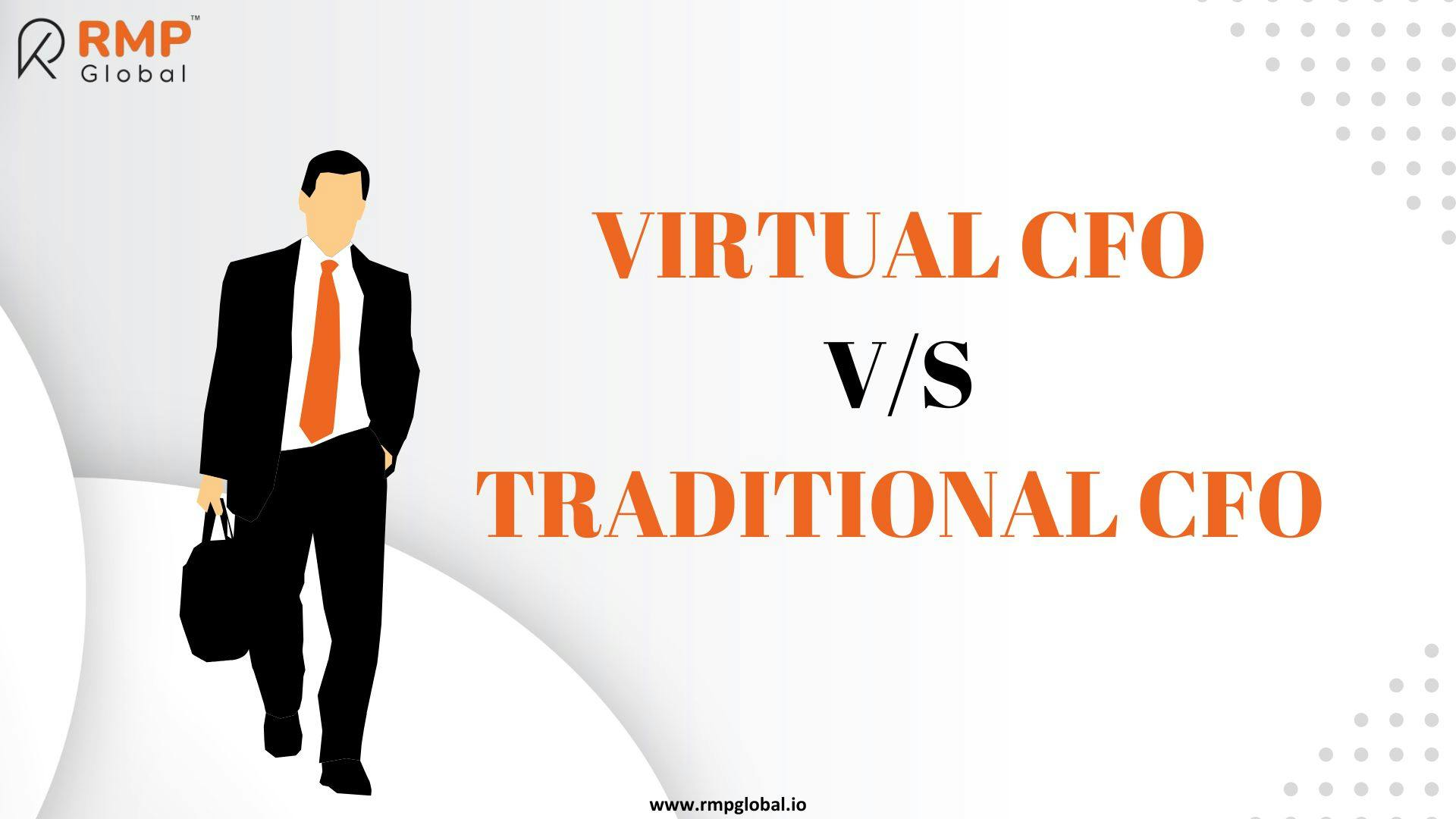
Share
Choosing the right CFO is a critical decision for any business. With the rise of digital solutions, companies now have the option to choose between a Virtual CFO and a Traditional CFO. Both roles aim to provide financial leadership, but they do so in different ways. This blog will help you understand the differences between a Virtual CFO and a Traditional CFO, so you can decide which is the best fit for your business.
What Is a Traditional CFO?S
A Traditional CFO is an in-house executive who works full-time at your company. They are responsible for managing the financial actions of the company, including financial planning, risk management, record-keeping, and financial reporting. They work closely with other executives to develop and implement strategies that ensure the company’s financial health.
What Is a Virtual CFO?
A Virtual CFO offers the same services as a Traditional CFO but works remotely and typically on a part-time or contractual basis. This role is often fulfilled by an individual or a firm that provides financial expertise to several companies simultaneously. Virtual CFOs use technology to manage finances, offering flexibility and cost savings.
Key Differences Between a Virtual CFO and a Traditional CFO
1. Cost
Traditional CFO: Hiring a full-time CFO can be expensive. Salaries, benefits, and other associated costs can add up quickly.
Virtual CFO: Generally more cost-effective, as you only pay for the services you need. This can be particularly beneficial for small and medium-sized businesses.
2. Flexibility
Traditional CFO: Works fixed hours and is always present at the office. This can be beneficial for constant, on-site collaboration.
Virtual CFO: Offers flexibility with remote work, which can be advantageous for businesses that do not require a full-time financial executive.
3. Expertise
Traditional CFO: Usually has deep knowledge of your specific industry and company due to their dedicated, full-time role.
Virtual CFO: Brings a broad range of experiences from working with various clients across different industries, providing diverse insights and innovative solutions.
4. Accessibility
Traditional CFO: Always available in person for meetings, making communication straightforward and immediate.
Virtual CFO: While not physically present, they are often highly accessible through digital communication tools like video calls, emails, and messaging apps.
5. Scalability
Traditional CFO: Ideal for larger companies that need a full-time executive to handle complex financial tasks and strategies.
Virtual CFO: Perfect for growing businesses that need financial expertise but are not yet ready to commit to a full-time CFO. Services can scale up or down based on the business’s needs.
Which One Is Right for Your Business?
When deciding between a Virtual CFO and a Traditional CFO, consider the following factors:
Business Size and Needs: Small to medium-sized businesses might benefit more from the flexibility and cost savings of a Virtual CFO, while larger companies with complex financial needs may require the full-time presence of a Traditional CFO.
Budget: If your company is budget-conscious and cannot afford the high salary and benefits of a Traditional CFO, a Virtual CFO is a more affordable option.
Industry and Complexity: For businesses in highly specialized industries or those requiring constant financial oversight, a Traditional CFO’s dedicated expertise might be necessary.
Growth Stage: Start-ups and rapidly growing companies can leverage the flexibility of a Virtual CFO to adjust services as they scale, without the long-term commitment.
Technology: Companies comfortable with digital tools and remote collaboration can seamlessly integrate a Virtual CFO into their operations.
Conclusion
Both Virtual CFOs and Traditional CFOs play crucial roles in guiding a company's financial strategy and health. The best choice depends on your business’s specific needs, budget, and growth stage. By understanding the key differences and benefits of each, you can make an informed decision that aligns with your company's goals and ensures financial success.
This article is only a knowledge-sharing initiative and is based on the Relevant Provisions as applicable and as per the information existing at the time of the preparation. In no event, RMP Global or the Author or any other persons be liable for any direct and indirect result from this Article or any inadvertent omission of the provisions, update, etc if any.
